Fritextsökning
Artiklar per år
Innehållstyper
-

Samuel Lagercrantz: We are currently seeing medical breakthroughs in these areas
Samuel Lagercrantz, Editor in Chief of Life Science Sweden, lists three medical fields in which we are currently seeing major breakthroughs and two fields in which we can see some long-awaited positive developments.
-
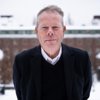
Mathias Uhlén’s protein atlas is recognised as a global resource
The Human Protein Atlas is the first database in Sweden to be designated a Global Core Biodata Resource. According to Mathias Uhlén, this is a quality hallmark and an opportunity for additional collaborations.
-

Anna Törner: The clinical trial – Periscope to reality
What happens to the patients in the clinical trial is not very interesting, writes Anna Törner in a column.
-

Founder of Bioarctic, Lars Lannfelt, is honoured: “I want to create something for the future”
It´s like a scientist’s dream: to be the world’s first with a drug that genuinely affects one of our major diseases. Lars Lannfelt and his company Bioarctic have achieved just that, and they are thus making a significant contribution to the history of Swedish medicine. He is now being awarded the Research!Sweden Award 2023.
-
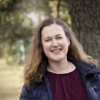
“You discover one thing – and then 10 new questions arise”
COVID-19, diabetes, heart disease, and the impact of dog ownership on humans are just some of multitasker Tove Fall’s areas of research. However, her current focus is on her next field: the role of gut flora in human health.
-
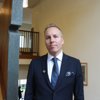
Rickard Sandberg on this year’s Nobel Prize in Medicine: ”A key discovery”
The discovery that paved the way for the development of todays mRNA vaccines is the basis for this year’s Nobel Prize in Physiology or Medicine.
-

The first drugs to slow down Alzheimer’s – but what does it mean for patients?
New treatments for early Alzheimer’s are bringing hope to thousands of patients and their families. The question is, who will get the treatment, how will the right patients be found in time, and will the healthcare system’s resources be sufficient? Life Science Sweden has spoken to Swedish researchers in Alzheimer’s who voice cautious hope but also see further challenges.
-
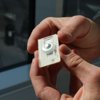
From the sea of Åland to a self-test for lithium
Four years ago, a meeting on the sea of Åland resulted in the development of a self-test for lithium levels in the blood. The hopes are that the test will be available for individuals with bipolar disorder in the future.
-
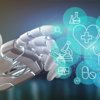
Here are the pharmaceutical companies best prepared for AI
How well prepared are pharmaceutical companies in the field of artificial intelligence? That is what a new analysis has tried to evaluate.
-
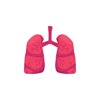
Nanoparticles to help detect pulmonary disease
Nanoparticles behave in a certain way in the air. Using this knowledge, researchers at Lund University have developed a new measurement method for lung examinations based on the phenomenon.
-
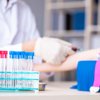
Studie: Blodprov för att mäta hjärnpåverkan efter neurokirurgi
I framtiden tror forskare vid Göteborgs universitet att ett blodprov skulle kunna vara ett komplement till magnetkamera för att undersöka skador i samband med kirurgi av hjärntumörer.
-

New report: Fewer PhDs in life sciences
A new report from Vinnova suggests that competency returns in the life science sector are declining.
-

Elypta awarded one million USD from the Star Trek creator’s foundation
Swedish company Elypta, which develops methods for early cancer detection, has been awarded one million USD from an unexpected source: a foundation set up in memory of the creator of Star Trek.
-

Rapid development in blood analysis – “Sweden is leading the race”
Thousands of analytical tests using just one single drop of blood. What was revealed as a hoax just a few years ago is now a reality, according to KTH professor and serial entrepreneur Mathias Uhlén.
-

Individual DNA passport could result in fewer drug side effects
You may be required to show a DNA passport when you pick up medicines at the pharmacy in the future. According to a new study, patients might suffer 30% fewer side effects if the drug treatment is adapted to their genes.